Humanities & Social Sciences
Mak Celebrates the International Mother Language Day: Families, Language Experts & Policy Makers Called to Harness & Promote African Languages
Published
2 years agoon
By
Jane Anyango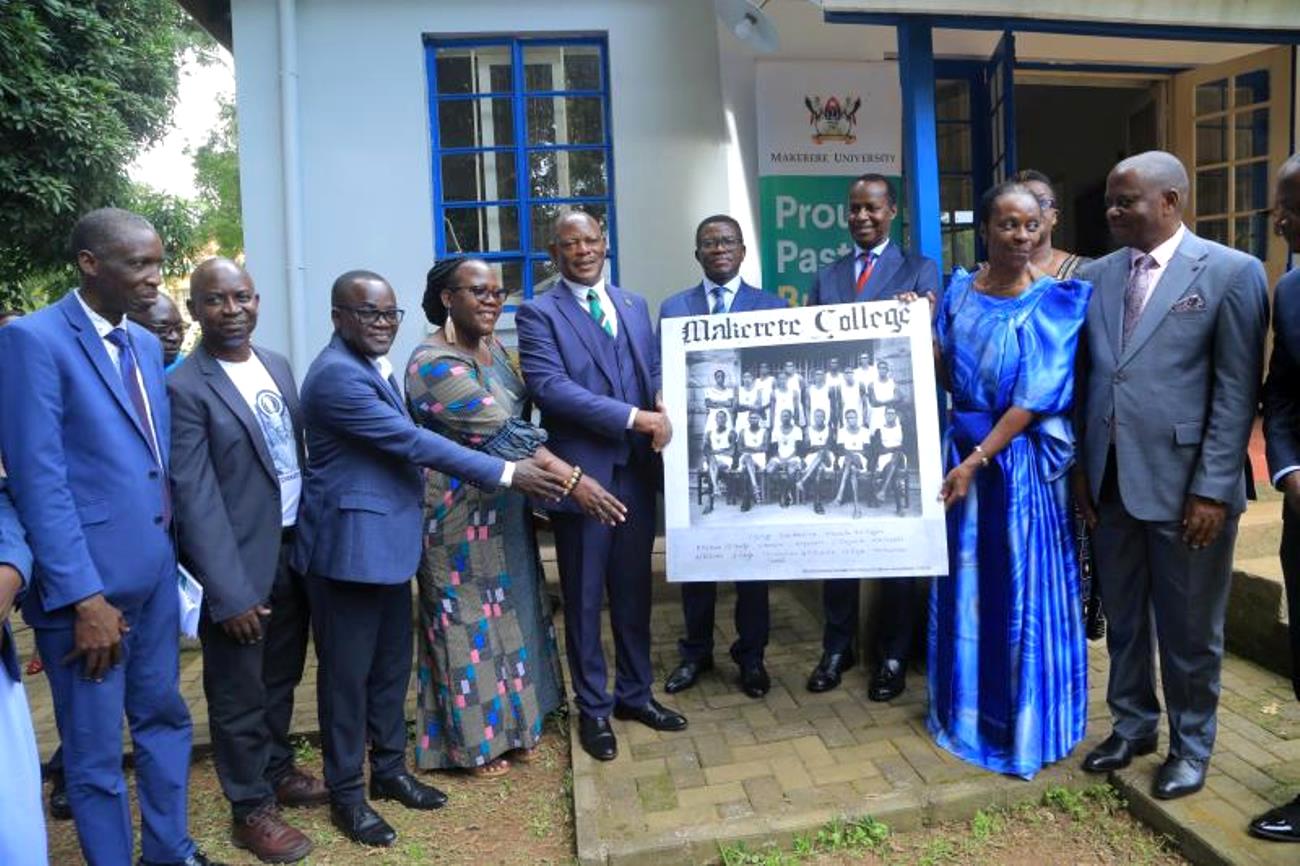
Makerere University through the Department of African Languages, School of Languages, Literature and Communication on 21st February 2024 joined the rest of the world to celebrate the International Mother Language Day. This day is observed every year to promote linguistic and cultural diversity and multilingualism.
The celebrations started with the official opening of the Sir Edward Muteesa II Museum at Makerere University in the morning. Sir Edward Muteesa II was the 35th Kabaka of Buganda and the first President of the Republic of Uganda, and an alumnus of Makerere University. Sir Edward Muteesa II Museum is located at Makerere University, Quarry Road, Plot 95. This site was the on- campus private residence of Sir Edward Muteesa II when he was a student of Literature at Makerere from 1943 to 1945.
The International Mothers Language Day ceremony was held in the afternoon on the major theme, “Different Languages, One People: Celebrating and Harnessing Uganda’s Linguistic and Cultural Diversity,” while the days’ Sub-theme was, “Harnessing Cultural Diversity for Social and Economic Development”
The inauguration of the Museum and the celebrations to mark the International Mother Language Day were presided over by the Kabaka of Buganda represented by the Nnaalinnya – Agnes Nabaloga at the Yusuf Lule Auditorium. Nnaalinnya was accompanied by the Katikkiro Owek. Charles Peter Mayiga. The Vice Chancellor, Makerere University Prof. Barnabas Nawangwe, Ministers and the royal family members from Buganda Kingdom, Members of University Council and top Management, Principals, Deans and Heads of department, Students’ leaders and the Nkoba Zamboggo Students’ Association and the academic fraternity graced the occasion.
Multilingual Education is a pillar for Inter- Generational Learning, says the Kabaka
While delivering Kabaka’s message, Nnaalinnya hailed the School of Languages, Literature and Communication for collaboratively organising the 2024 celebration with the Nkoba Zamboggo Students Association.
As custodians of culture that cherishes and endeavors to protect and develop its own mother language (Luganda), Nnaalinnya thanked the nation of Bangladesh which initiated the idea of celebrating mother languages at the international level. This idea she reported, was embraced and promoted by UNESCO in 1999 and, has been celebrated since then.
In line with the theme of the conference, Nnaalinya said, multilingual education is a pillar for inter- generational learning which rhymes appropriately with country’s pillars, contexts and environment which is multicultural and multilingual.
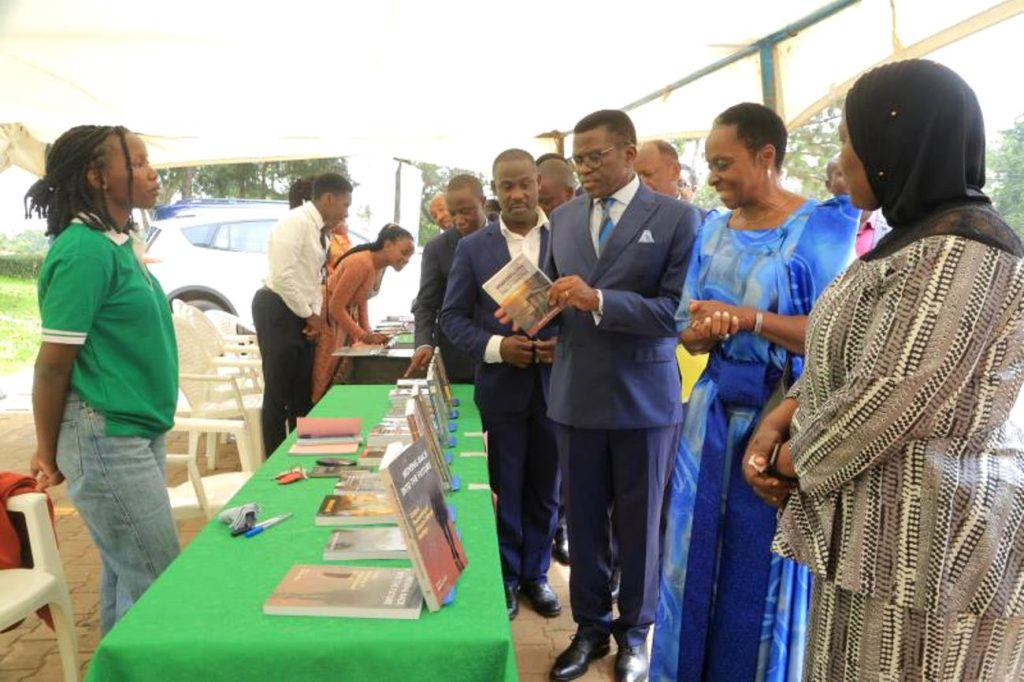
Nnaalinnya also applauded the chosen theme, “Different Languages, One people: Celebrating and Harnessing Uganda’s Linguistic and Cultural Diversity” which brought the celebration of the day closer to home.
“The two themes are worth celebrating with the pomp and seriousness they deserve. Even more importantly, am very encouraged to know that youth represented by Makerere University Nkoba Zamboggo Students Association have played an active part in the organisation of the event.” She said.
She noted that such participation of the youth guarantees the promotion, protection and promotion mother languages for the preservation and transmission of traditional knowledge and cultures in a sustainable manner.
She also noted with joy that, this year’s celebration coincides with the commemoration of the Nkoba Zamboggo 34 years of existence and activity which was active in the difficult years of the 1960s.
Prioritise your mother languages and learn other languages –The Katikkiro of Buganda
The Katikkiro of Buganda Charles Peter Mayiga advised on the need to prioritise mother tongues and to learn other languages.
Mayiga said, learning a language is resourceful and that while prioritising own mother tongue, it is important to learn other languages.
“To promote mother languages is to acknowledged diversity. Our diverse heritage should be seen as the foundation of the modern African states. Every time we neglect or relegate our mother tongues, we inadvertently ignore the similarities of our different nationalities.” He said.
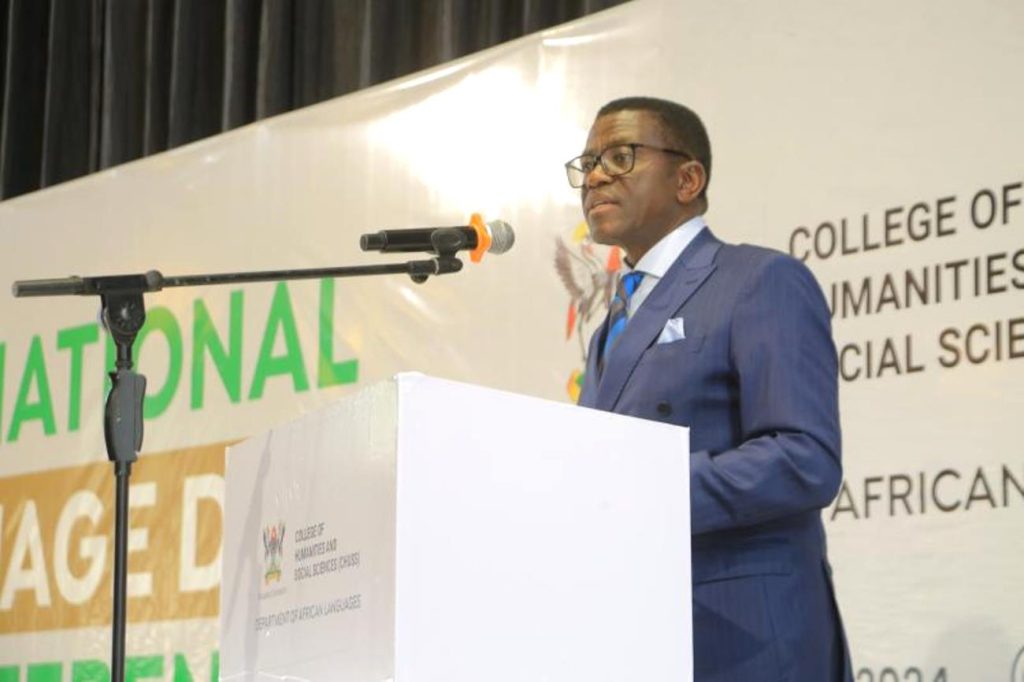
The Katikkiro expressed the need to acknowledge similarities to help build consensus noting that ,consensus is the true and genuine source of national unity.
He commended the university administration for restoring the former residence of Ssekabaka Edward Mutesa II and for turning it into a museum.
“A people that ignore their history can learn nothing from their experiences and that is one of the sources of constant turbulence in the world”, He said.
Makerere can only be stronger if Traditions, Culture and Heritage are Embraced – Prof. Barnabas Nawangwe
The Vice Chancellor Makerere University Prof. Barnabas Nawangwe stressed that Makerere can only be stronger if all embrace traditions, culture and heritage.
Nawangwe said the university was honored to host two important celebrations namely, the opening of the Muteesa II Museum at Makerere and hosting the international mother languages day.
“This is a historic event in our university. Kabaka Muteesa was a student at Makerere University when he was already king and that alone, is a such a big honor for us and, we must indeed be proud of that. That is why we have honoured his legacy by making the house where he stayed a museum.
“That museum is invaluable for all of us in Uganda and, I invite all Ugandans and visitors to come and witness the history of our first president of this country and one of the leaders in the struggle for independence”. The Vice Chancellor emphasised.
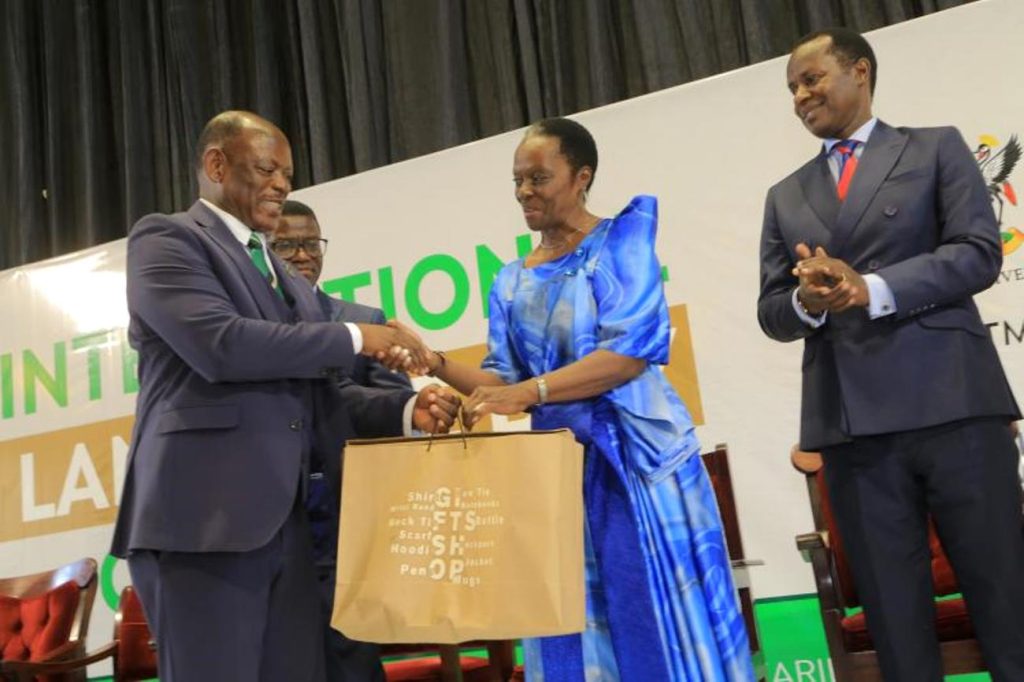
The Vice Chancellor appreciated the Buganda Kingdom for gracing the occasion when the university is celebrating the World’s Mother Language Day.
“There could not have been a better choice than inviting one of the cultural leaders in this country to officiate at this event and, I want to congratulate you Principal, Dean and Head of department for that vision of putting events properly in context”. Prof. Nawangwe appreciated.
The Vice Chancellor said he had picked a number of lessons from the various speakers and challenged to write his memoirs when he retires in Lugwe, then have it translated in English by others.
“But we are privileged this morning to have these important visitors to honour these two events at Makerere University, please send our highest regards to His Royal Highness the Kabaka”, Nawangwe said.
The Principal College of Humanities and Social Sciences Prof. Josephine Ahikire expressed the need for Ugandans to value their mother tongues on grounds that the African culture had the power to correct men and women adding that, there is so much to learn and put in practice.
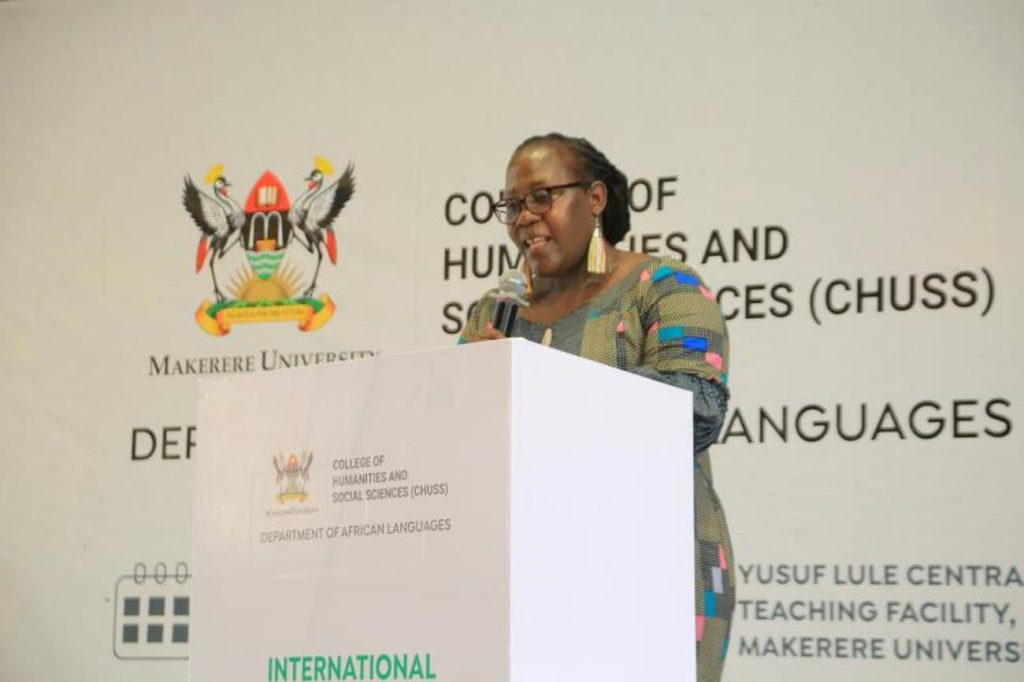
Prof. Ahikire also noted that language is needed as a powerful instrument of connection, and teaching one another with respect that expresses our political and social state of humanness.
The Principal applauded the Buganda kingdom for the initiatives that have deepen knowledge in culture among students and staff.
Language experts called to translate, write and publish in mother tongues
In his Keynote address on the Linguistic and Cultural Landscape of Uganda Prof. Manuel Muranga said, all human beings are potentially at their most effective, their most creative, their most comfortable when using their mother tongue or first language.
“The language one spoke as an infant and grew up in, matters. It is possible to learn to write in a dominant language in one’s neighbourhood, rather than writing in one’s own, but to learn to speak that language in lieu of one’s own involves a painful death to self, a sort of denial of one’s linguistic identity”. Muranga stated.
Because of the strength of inspiration and the energy of creativity that comes from this relationship to one’s mother tongue or first language, Prof. Muranga called on language experts to start writing and publishing in their mother languages.
To harness linguistic diversity, Muranga challenged language experts and educational institutions to have as many books as possible produced in the mother tongues through direct authorship in those mother tongues and through translation into them.
“We need to say “Yes!” to a phase in our lives of adventure and experiment with our mother tongues. It will get us somewhere. The harnessing of our mother tongues, each one of his or her own, begins right here: at the point where we, especially university dons in language, literature and communication, get a pen and begin to write a letter, a story, a translation or whatever, in the mother tongue”, Prof. Muranga advised.
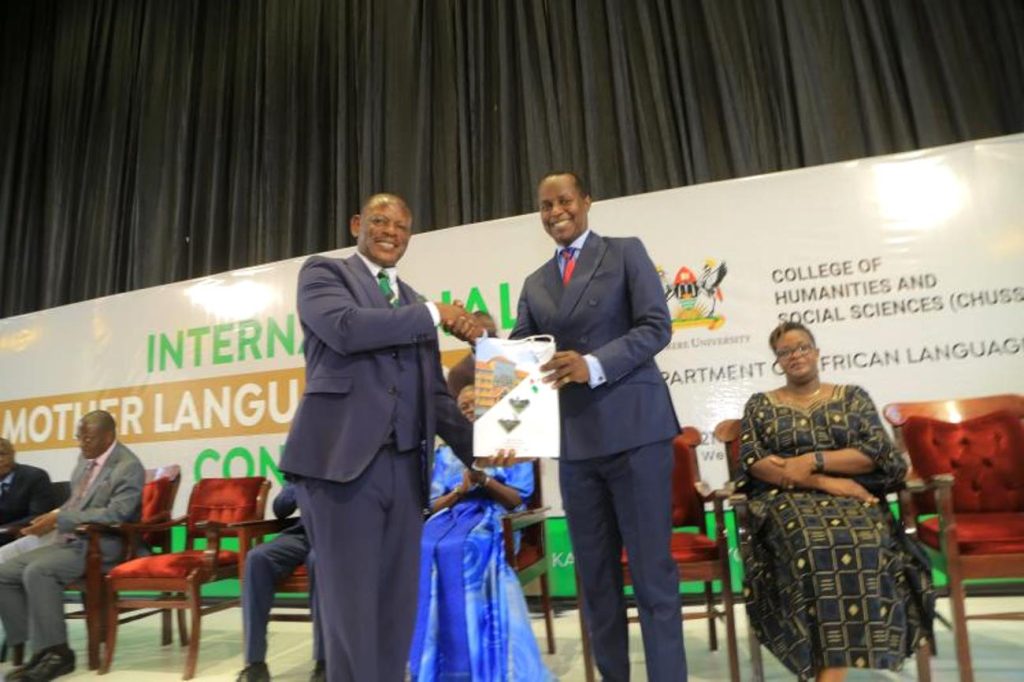
At the same time, Prof. Muranga also advocated for writing in one’s mother tongue on the linguistically standardised foundations of orthography that should be encouraged and even deliberately cultivated by cultural leaders and educationists. These he said, would entail sms’s and WhatApp messages, email and other types of letters, poems, short stories, long stories, biographies and autobiographies); novels, plays, newspaper articles, sermons etc. in good, interesting language.
Muranga also advocated for the use and promotion of mother languages in families especially the young, upper class and in some cases middle class, urban families, and from educated ethnically mixed marriages, whose first and strongest language is our Ugandan English.
“But we should also have textbook writers in all the academic disciplines writing in the mother tongue: Chemistry, Biology, Physics, History, Geography, Economics, Law etc. in the mother tongue. We need M.A.s and Ph.D.s that consist in the main in the production of, for example, a modern Biology or Mathematics textbook in Luganda, Lugbarati or Lukonzo through translation”. The professor stressed adding that:
“When I was in S.2 we had a textbook of Chemistry by an author called Atkinson; it was, of course, in English. I never understood the concept of valence and even today I don’t understand it. Can someone explain it to me in simple English or, preferably, in Rukiga or Luganda? A person doing an M.A. in translation would explain to us what valence is and would propose a viable, or at least debate-provoking rendering for it in his or her mother tongue.
That kind of work, should be happening in our universities. An interdisciplinary M.A. and M.Sc. in Translation would produce for us disseminators of knowledge and tools for the implementation of a tri-lingual (Mother Tongue, English and Swahili in that order) education policy which I advocate for”. Muranga stated.
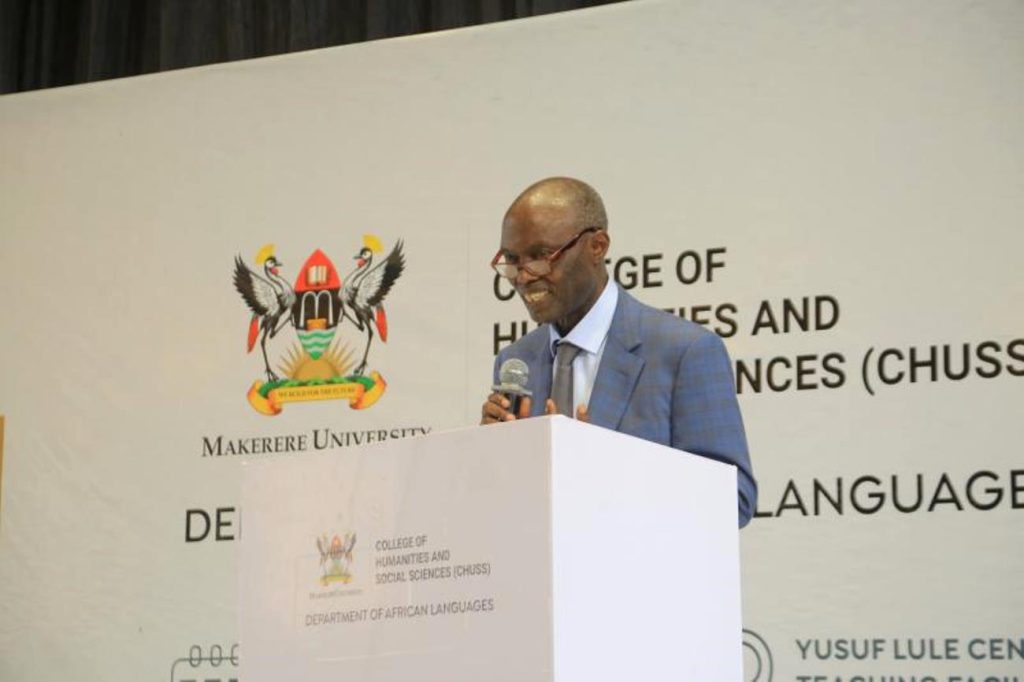
Benefits from linguistic and cultural diversity
Speaking on Advantages of linguistic and cultural diversity prof. Muranga noted that the entire world’s fabric is diversity. Diversity according to the professor, is part and parcel of nature’s design, just as there are no two people who are 100% alike even when they are identical twins, so each human being has his or her own way of speaking, his or her idiolect.
He explained that multilingualism in Uganda and worldwide can, if positively embraced, lead to a language and language-based cultural industry being built around, for example, each single one of the 65 languages of Uganda and the 2080 or so languages of Africa. If this has happened in Europe, Prof. Muranga argued, then it can also happen in Africa- but it takes conviction and linguistic patriotism on the part of the speakers of these languages. If such patriotism is absent, those languages will die within a few generations of the descendants of the present-day speakers.
Prof. Muranga highlighted some of the advantages of linguistic and cultural diversity as follows:
- Sharing the culture around each of these languages can be great educational fun and can also create jobs. This sharing is, again, primarily the work of translators and interpreters. There were, as of August 2022, approximately 640,000 translators in the world. Interpreters’ statistics are harder to determine but there were in the USA alone in 2023, 52,000 interpreters and translators.
- The freedom to be creative in your mother tongue or first language is something very precious – indeed the entire freedom to access education in the mother tongue from elementary school to university is one of the principles of international justice as propounded by UN and UNESCO. Great poets and writers in general are those who write in their mother tongues (cf. Johann Gottfried Herder’s {1744-1803} essay entitled: “A true poet is one who writes in his own language”.) But it takes practice to be good even at writing in one’s mother tongue. It does not come automatically – and even I at my age I am still learning.
- Those who embrace linguistic and cultural diversity embrace world citizenship, or cosmopolitanism, at the same time; they overcome ethnocentrism. And cosmopolitanism harmonises well with a central Christian doctrine as stated in Galatians 3:28, which suggests that you cannot be a true Christian and at the same time a tribalist or a racist; the two are incompatible.
- Cultural diversity promotes tourism both domestic and interethnic/international, creating opportunities for a healthy enjoyment of positive human life and creative talent in all its variegation as music, dance, drama, poetry, architecture, engineering, indigenous knowledge, etc. Imagine we had an income-generating ethno-historical museum and a cultural centre at the headquarters of each of the 136+ districts of our current Uganda. I would like to urge the parliamentarians to vie for this kind of development.
Disadvantages:
- Linguistic and cultural diversity can be rather costly. Yet if the economy of a multilingual nation is well managed, the income from the diversity can cover the cost, yielding profits and benefits.
- Working through translators and interpreters is not direct conversation face to face and ear to ear. Something gets lost in the process of transfer.
- Some uncouth, ethnocentric minds in a multilingual and multicultural nation might be tempted to exploit linguistic and cultural diversity for secessionist ends, instead of for cosmopolitan ones. But such narrow-minded people are doomed to failure, for even in a family unit of two parents and three children, there can be division and even secession. A monolingual or even culturally homogeneous situation in a country does not guarantee harmony and peace. Look at Somalia; and remember Rwanda.
Language, as a symbol of identity, vehicle for communication, a pillar for social integration, education and development, Dean SLLC
The Dean School of Languages, Literature and Communication Assoc. Prof. Saudah Namyalo explained that the International Mother Language Day is a worldwide annual observance held on 21st February to promote awareness of linguistic and cultural diversity which exists in many communities.
The day was first announced by UNESCO on 17 November 1999, and it was formally recognized by the United Nations General Assembly with the adoption of UN resolution in 2002. The International Mother Language Day is part of a broader initiative “to promote the preservation and protection of all languages used by peoples of the world”.
Although languages,are a symbol of our identity, a vehicle for communication and a pillar for social integration, education and development, Prof. Namyalo observed that due to globalization processes, they are increasingly under threat, or disappearing altogether.
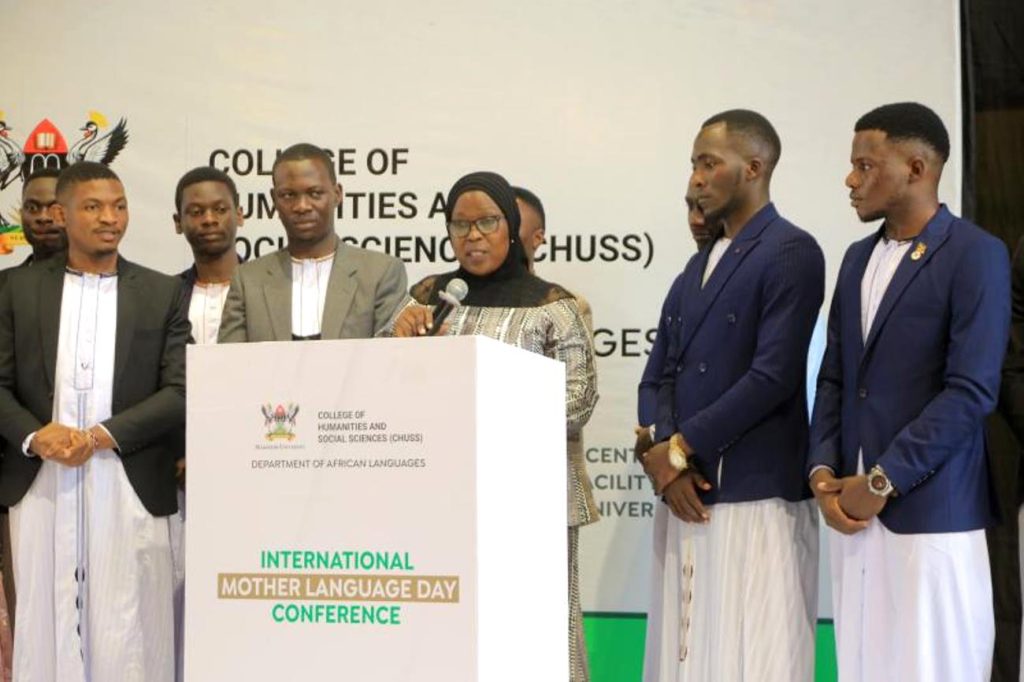
“Every two weeks a language disappears or dies. When a language dies, it takes with it an entire cultural and intellectual heritage. Not only that, we also lose perspectives, ideas, opinions and most importantly, we lose a unique way of being human.Opportunities, traditions, memory, unique modes of thinking and expression which are valuable resources for ensuring a better future also lost. Sadly, close to 45% of the estimated 7000 languages spoken in the world are endangered, threatened or near extinction. Only a few hundred languages have genuinely been given a place in education systems and the public domain, and less than a hundred are used in the digital world.” Prof. Namyalo observed.
Namyalo called on participants to reflect, understand and appreciate that although Ugandans are diverse in terms of the languages and cultures they possess, they are one.
She explained that Africa’s divisive seed was planted with the advent of colonialism and the Berlin Conference that gave Africa its modern states. The artificial borders and the dirty politics that ensued according to the professor, made people think that they are different.
The present ethnic emblems according to Dean Namyalo, are more of geographical markers than distinct cultural entities. For instance, she said, one is a Musongora because they come from Busongora.
“Today, we recognize over 50 ethnic groups, but we need to be political about this and invest in our history in order to cement our rootedness and recognise the bonds that hold us together. Unless we understand the importance, of unity in diversity and stop giving lip service to multiculturalism we shall continue to see new kingdoms and ethnic groups emerging”, Dean Namyalo warned.
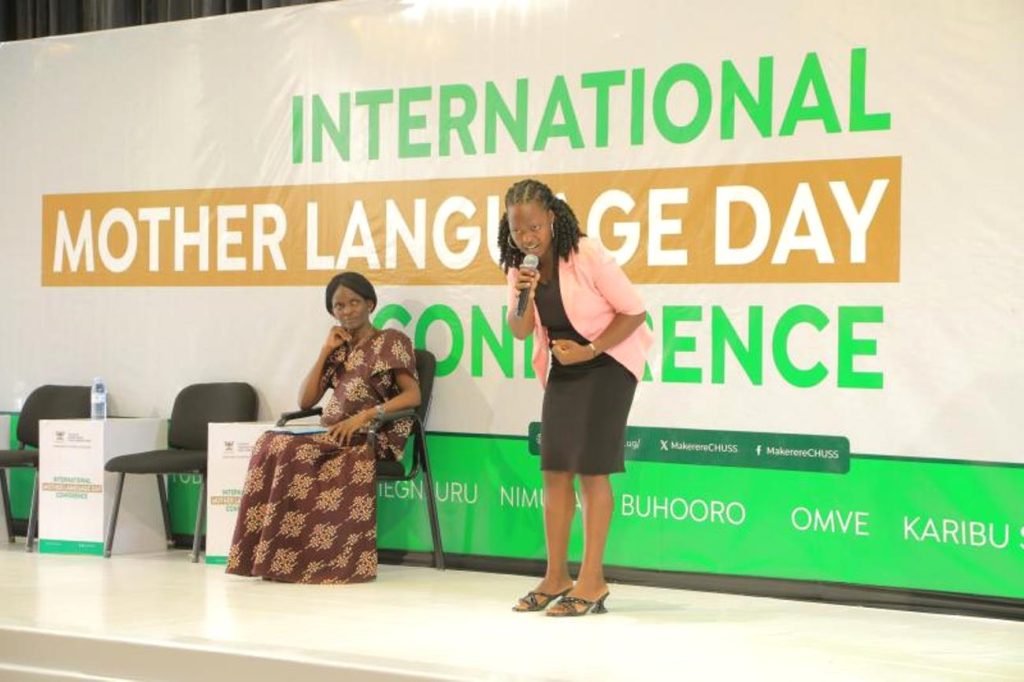
Just from our myths, Prof. Namyalo highlighted that the Baganda are related to the Bagisu, and the Bagisu are related to the Basamia, Banyole, and the entire Luhya community in Eastern Kenya. Their language intelligibility attests to this. The Bagisu are linguistically and culturally related to the Bakonzo, who are related to the mountainous Bakiga. The Bakonzo are 1 million people in Uganda, while their kin are over 6 million in Eastern DRC called the Bayira (this is just one example of the colonial border problems).
The kin of the Bamasaba: The Baganda (Via the myth of Kintu/Kuntu) are linked to the Banyoro, the Banyoro are connected to the Batooro and Banyankole- Bakiga, and Banyarwanda because they all belong to the Kitara empire and their cattle keeping and agricultural practices demonstrate this. When Kitara disintegrated with the fall of the Bacwezi, the Biito Luos took over. There is a close linkage between the Luos and the Banyoro, especially, the ruling families in Bunyoro, Tooro, Buganda, Busoga, and Ankole are all of Luo origin. The Luos are cousins to the West Nilers, who have a close affinity to the Lango. The Lango are Luo in terms of language but, genetically and culturally, are linked to Itesots, Karamojongs, Masai, and Turkana.
Makerere to start teaching Advanced Lusoga, Ateso and other languages – Head Dept. of African Languages
The Conference Convener and Head of Department of African Languages Dr Gilbert Gumoshabe explained that department was established in 2012, having been part of the then Institute of Languages, which had also been part of the Department of Languages. At present, five degree subjects at undergraduate level namely; Luganda Advanced, Kiswahili Advanced, Kiswahili Beginners, Runyakitara Advanced and Luo Advanced are offered.
“We have proposed to start teaching Lusoga Advanced and Ateso Advanced. We believe these will be part of the subjects in the next admission in August 2024, as BA Arts is in the final stages of re-accreditation. The syllabus for Lugbarati Advanced is also in the final stages of development. Our mission is to ensure that all local languages taught at the secondary level in Uganda are also taught at the department”, Dr. Gumoshabe said
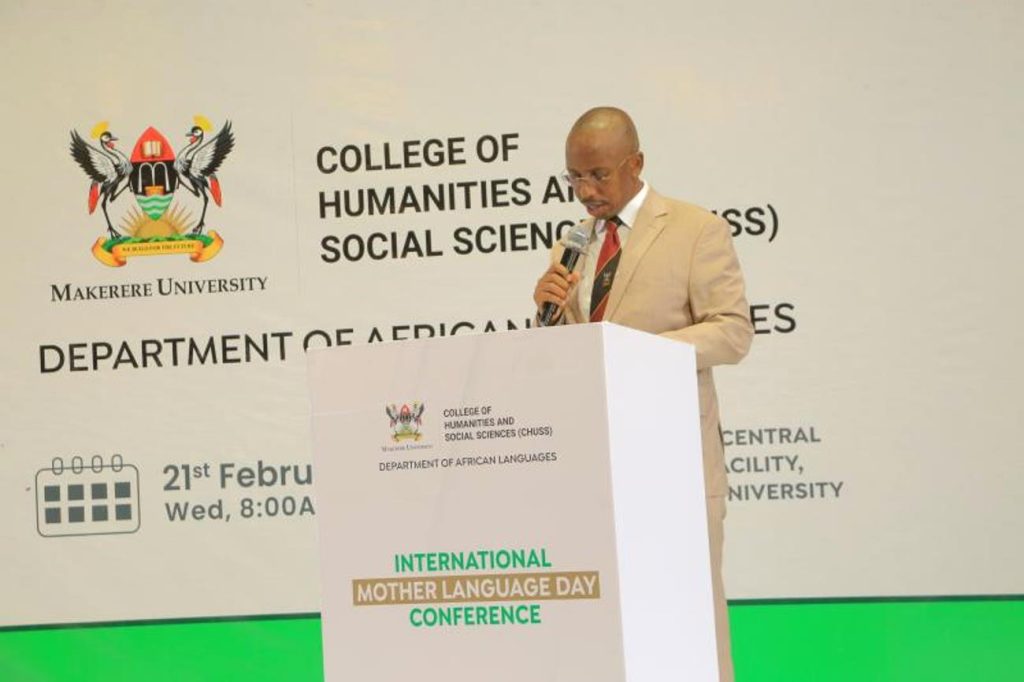
At the masters level, Dr. Gomushabe said , they have MA in African Languages. During the revision period, it was agreed to re-introduce MA in Luganda, MA in Kiswahili and MA in Runyakitara and to continue to develop indigenous languages as capacity is built. The department also offers PhD in African Languages by Research.
Dr. Gomushabe appreciated the persons who spearheaded the teaching of local languages especially Prof. Livingstone Walusimbi (RIP), Prof. Kasalina Matovu (RIP), Prof. Ruth Mukama, Prof. Oswald Ndoleriire, Prof. Manuel Muranga, Mrs. Shirley Byakutaga, Prof. Edith Natukunda and Ms. Jane Alowo.
At the level of staffing, the head reported that the department has 9 PhDs, and 5 registered PhD members of staff with one at the Associate Professor level. The students offering the subjects in African Languages are doing BA Arts, BA with education, BA Social Sciences. The department also service programs in the Colleges of Agriculture and Environmental Sciences, Computing and Information Sciences and Education and External Studies.
The Aim of the conference
Gumoshabe said the aim of the conference is to motivate discussion between national scholars and stakeholders of language and culture in Uganda and beyond.
“It is on this day that we celebrate cultural diversity and appreciate the sweetness in our mother tongue through cultural entertainment of different forms, presentations and discussions. It is through our mother tongue that we can preserve our cultural heritage. This is a God-given gift that we should never lose”, he said
Mother language according the convener, is a natural heritage and a foundation of identity. He stressed that what is important is to embrace unity in diversity by respecting and promoting diverse languages as they are in the motherland Uganda and this will enable document indigenous knowledge systems to supplement what is got from other countries.
Even in the face of development, civilization and modernization, Gumoshabe stated that mother languages should never be forgotten on reason that , there is no country on record that has developed using a foreign language.
“All countries that have developed have started by indigenizing knowledge and a foreign language has supplemented their efforts. This applies to both populous and less populous countries”, Dr. Gumoshabe asserted,
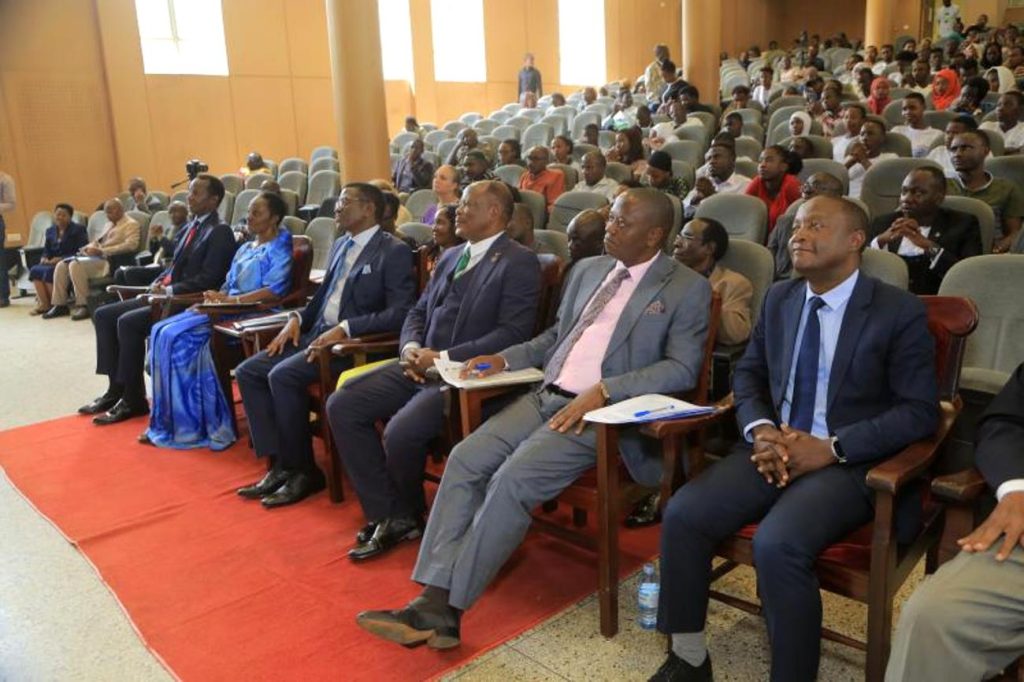
Gumoshabe cited Iceland with a population of 399,189 as of January 2024 that uses the Icelandic language as their official language. Since it has a small population, they would have used one of the European languages but they opt to use their indigenous language and their GDP per capita is $69,833.
He argued that, now that English is here to stay, all efforts should be put into developing mother languages and being multilingual. He added that, knowing four languages significantly increases chances of success in adulthood.
Dr. Gumoshabe extended gratitude to the college leadership for the tremendous support given for the success of this conference.
Gumoshabe thanked Keynote speakers, Prof. Manuel Muranga and Mr. Richard Nzogi and the panelists, for accepting for honoring the invitation and sharing their expertise and experiences..He also appreciated the Organizing Committee for this Conference headed by Dr Fridah Katushemererwe together with the different student associations especially Nkobazamboggo spearheaded by Mr Adrian Lubyayi, for tireless efforts in making this day colourful.
Finally, the convener thanked the Centre for Languages and Communication Services, the Principal, College of Humanities and Social Sciences and the Vice Chancellor, for the financial support that has made this day successful.
You may like
-


Celebrating Academic Excellence: CoBAMS Presents 975 Graduands at Mak 76th Graduation Ceremony
-


Mak 76th Graduation Ceremony: CoNAS Presents 16 PhDs & Best Performing Male Student in the Sciences
-


Medical graduates urged to uphold Ethical values
-


CAES Presents Overall Best Performing Student in the Sciences & a Record 28 PhDs at the 76th Graduation Ceremony
-


Over 9,200 to graduate at Makerere University’s 76th Graduation
-


Philliph Acaye and the Making of Uganda’s Environmental Health Workforce
Humanities & Social Sciences
Meet Najjuka Whitney, The Girl Who Missed Law and Found Her Voice
Published
4 days agoon
February 23, 2026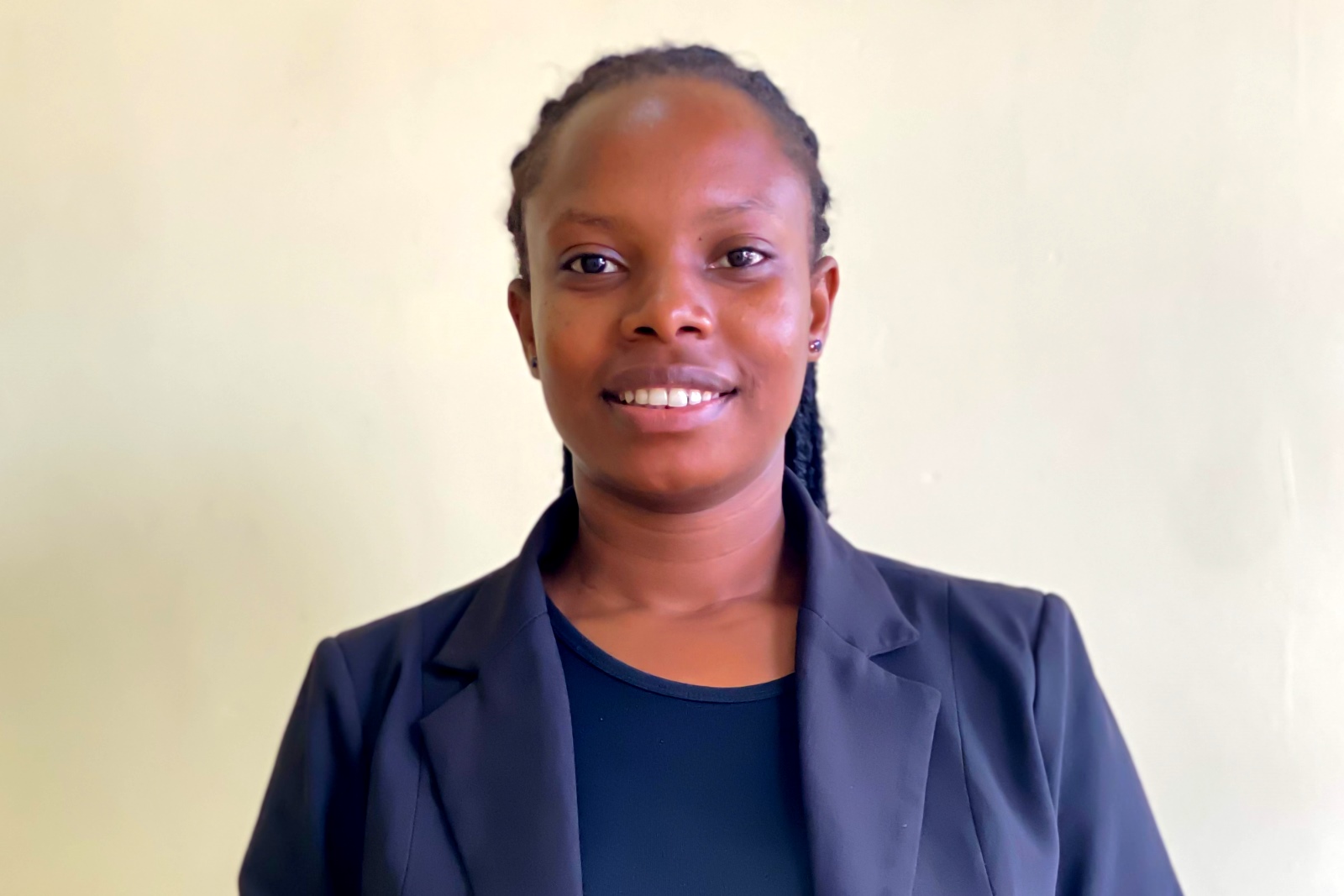
On the morning of Friday, February 27, when the academic procession winds its way across Makerere University’s Freedom Square for the last day of the 76th Graduation Ceremony, Whitney Najjuka will walk into history with a number beside her name: 4.46.
At Makerere, that number means First Class Honours. It means the Vice Chancellor’s List. It means she graduates as the only First-Class student in Journalism and Communication this year. But numbers, as Whitney has learned, rarely tell the full story.
Born on March 27, 2002, in Nabbingo, Kyengera Town Council, to Margaret Kusemererwa and Fred Kasirye, dreamt she would do Law, one of the disciplines, prestigious, almost inevitable next steps for a student who had excelled in secondary school. She had done everything correctly. Studied hard. Scored well. Followed the script.
But Makerere University had other plans. She missed the pre-entry mark, but found her name under Journalism and Communication, another prestigious course offered by the Journalism and Communication Department at Makerere University.
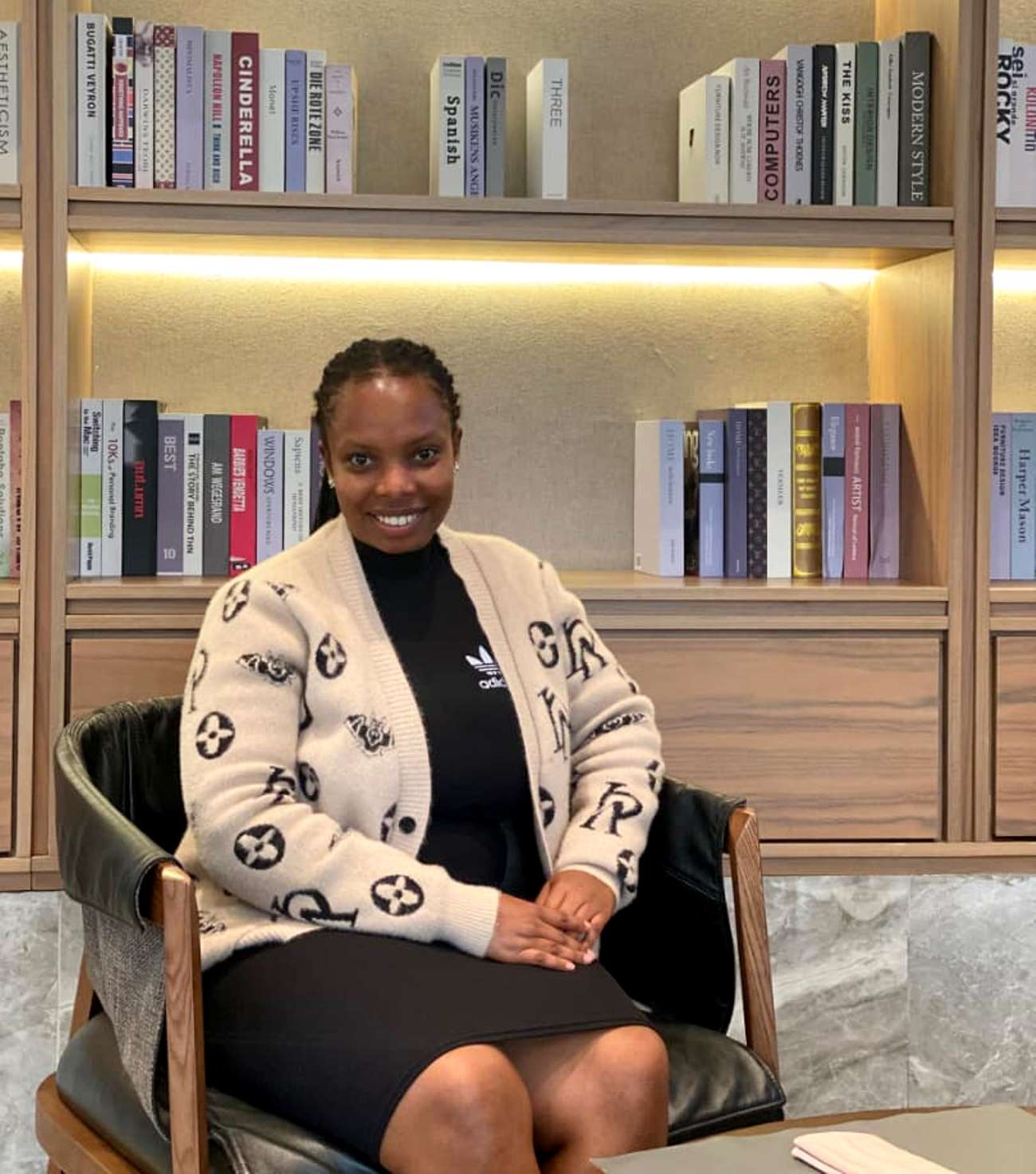
Najjuka began her academic journey at Muto Primary School in Buwama, earning 8 aggregates in the Primary Leaving Examination, a performance that positioned her strongly for secondary school.
She would later join St. Lucia Hill School, Namagoma, where she earned 20 aggregates at O-Level and 17 points in History, Luganda, and Divinity at A-Level.
Missing her dream course, Law, felt at first, like a detour. But Whitney was encouraged by Sanyu Christopher, her uncle, and she settled for a government-sponsored slot in the Bachelor of Journalism and Communication at Makerere, which she had applied for before.
She entered uncertain. But she graduates transformed.
The Pivot That Became a Purpose
Whitney speaks of her early university days with candor. She did not arrive at the Department of Journalism and Communication with a burning childhood ambition to be a journalist, but because another door had closed.
Then, Social and Behavior Change Communication happened. Applied Strategic Communication happened. She began to see media not as headlines and microphones, but as architecture, shaping how societies think, argue, and act.
The turning point came in her third year. The Female Journalist Foundation published her story on Sexual Gender-Based Violence (SGBV) and its emotional toll on survivors. What startled her was not its publication but the reaction. Comments flooded in. Debates ignited, especially about the role of men in combating GBV.
“I realized media doesn’t just report,” she says. “It frames how society views a crisis.”
Her voice, once tentative, had entered a national conversation.
The Discipline Behind 4.46
At Makerere University, a First Class CGPA is not built on brilliance alone but on ritual.
Whitney’s ritual began with showing up, on time, every time. She treated lectures as appointments with her future self. She refused to confine her learning to the syllabus. While attending workshops at the Aga Khan Graduate School of Media and Communication and obtaining external certifications, she sought and was open to mentorship through the Public Relations Association of Uganda (PRAU).
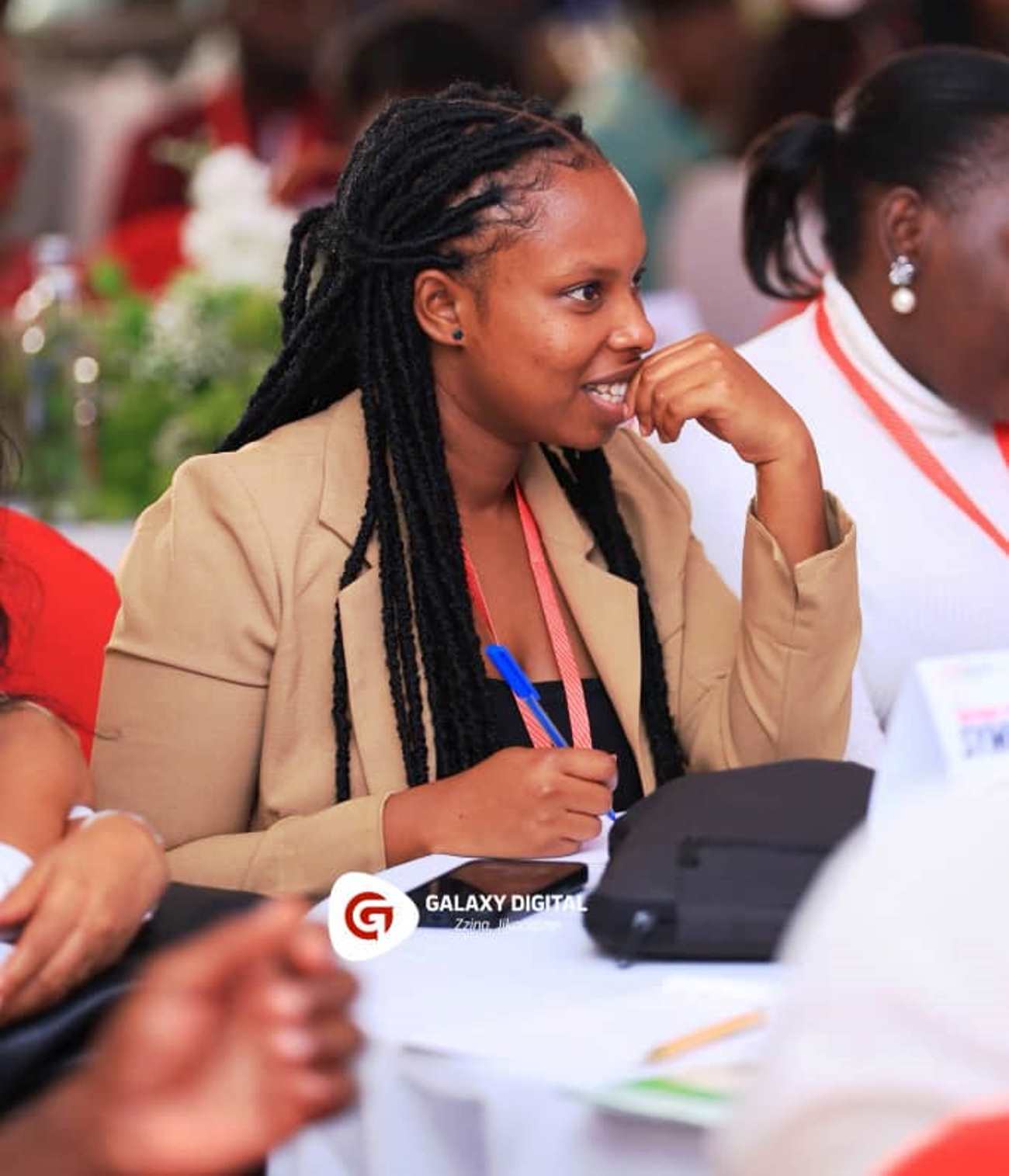
She wanted theory anchored in practice. And then there was the commute.
From Nabbingo, a hill in Wakiso District, some 18.6 km to Kampala, where the Makerere Main campus is situated, and back, nearly 20 hours a week dissolved into Kampala traffic. Two-hour journeys before 8:00 a.m. lectures. Dust. Noise. Headaches. She learned to manage energy the way others manage time. Fatigue became a tutor in resilience.
“I had to be intentional with every remaining hour,” she says. “Excuses were not an option.”
Learning to Practice Communication
If classrooms taught her analysis, presentations taught her courage. Pitching projects, defending research, and standing before peers quick to critique forced her to think on her feet. She was no longer simply studying communication; she was practicing it.
In 2024, the AGMES Fellowship at the Aga Khan Graduate School of Media and Communication pushed her further. She received funding to produce a capstone project on the mental impact of gender-based violence on survivors. She identified sources, conducted interviews, handled trauma with care, and worked with professional editors.
The Communication, she learned, is logistics and ethics as much as eloquence.
The Future She Sees
Whitney is optimistic about Uganda’s media landscape. The digital shift, she believes, has democratized influence. Young communicators are no longer confined to legacy newsrooms or offices.
Yet she sees a gap in the absence of structured research on sustainable, ethical, profitable independent media ventures in Uganda. Her ambition is not only to practice communication, but to study it. To produce data-backed frameworks that help young Ugandans transition from graduates to media entrepreneurs.
She wants to make the impact scalable.
What Remains
As the only First-Class graduate in her cohort, she is careful not to mythologize herself. “Success isn’t brilliance alone,” she says. “It’s a daily commitment when nobody is watching.”
Even before graduation, Whitney had stepped into the industry through a mentorship internship at Capital One Group (COG EA Ltd), a strategic marketing communications agency operating across East Africa.
At Capital One Group, we spoke to Paul Mwirigi Muriungi, the Managing Director and Head of Strategy, who spoke of Najjuka as a progressive and intentional young professional who approaches her work with curiosity, maturity, and responsibility.
“Her attitude is exemplary. She is teachable, receptive to feedback, and eager to grow. While technical skills can be taught, character, work ethic, and mindset determine long-term success, qualities that Whitney consistently demonstrates. Given her academic excellence and professional application, we believe she has a bright future both at Capital One Group and within the wider communications industry. She represents the kind of talent the profession needs: thoughtful, adaptable, and committed to excellence.
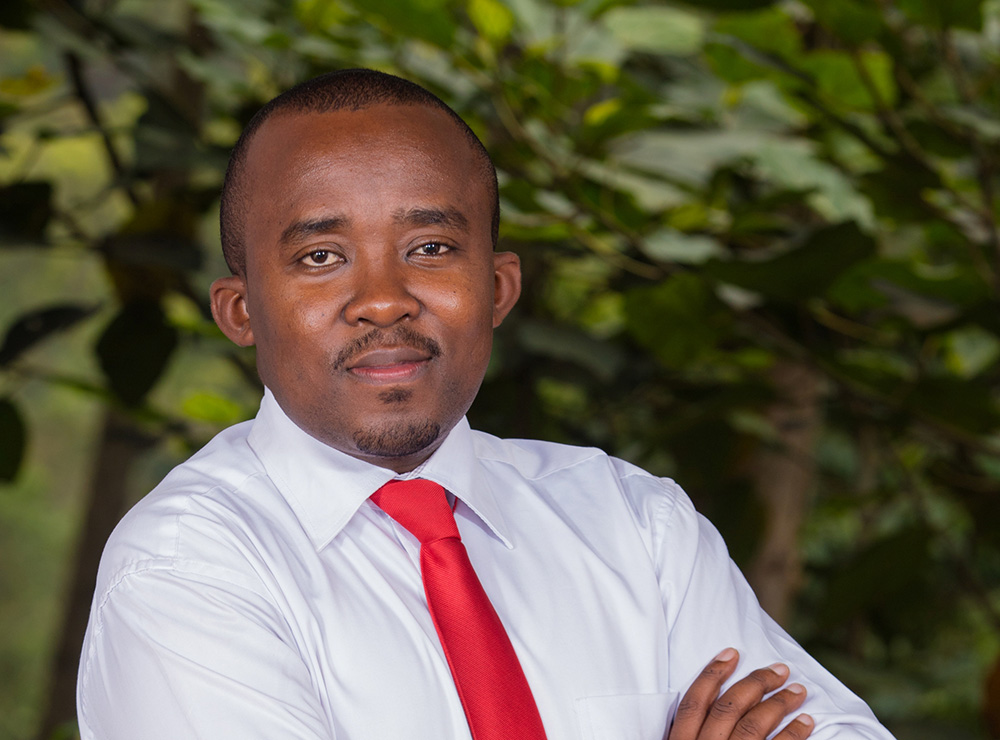
“We look forward to seeing her next chapter unfold,” says Mwirigi.
Najjuka’s gaze extends beyond her own trajectory. She speaks of what the Department could become. Furnished and equipped with industry-standard equipment, newsroom simulations, and deeper investment in data journalism as prayers. Her excellence is not self-congratulatory, but it is forward-looking.
“The University should support the Department to procure industry-standard equipment. Access to high-quality cameras, sound booths, and updated editing software like Adobe Creative Suite is critical to our learning environment,” she says.
Adding that, “We need a newsroom simulation, a physical or digital space where students work under real-time deadlines to produce content for the public. That would prepare us for industry and even strengthen the University’s own media platforms.”
In an era defined by metrics, algorithms, and digital traceability, data journalism is no longer a niche skill but a sine qua non of credible reporting. “There should also be more focus on data journalism and search engine optimization. These are no longer optional skills. Students would benefit immensely from stronger training in these areas.”
Dr. Aisha Nakiwala, the Head, Department of Journalism and Communication, says the faculty are very proud that she is graduating with a First Class—the only one in this year’s cohort.
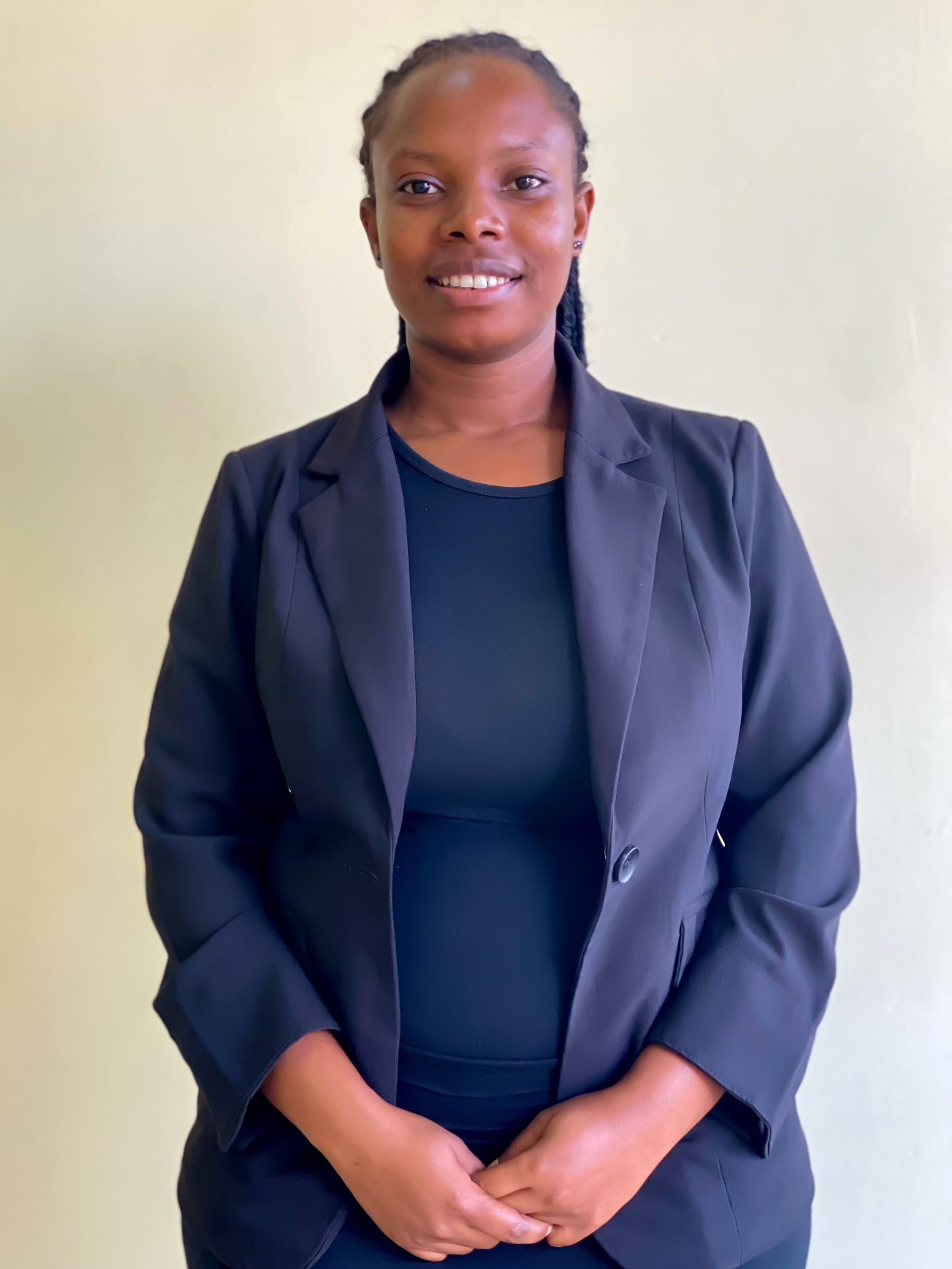
“This achievement reflects not only exceptional intellectual ability but also discipline, resilience, and sustained dedication to the highest standards over four years. Graduating with first-class honors is no small feat; it requires consistent outstanding performance.
“Her accomplishment sets a powerful example for continuing students and reaffirms our department’s commitment to nurturing excellence. We are confident she will make meaningful contributions to the communication profession and society at large,” says Dr. Nakiwala.
On graduation day, applause will crest and recede. The gowns will fold back into wardrobes. The transcripts will be filed away in cabinets. But something quieter will endure; a young woman from Nabbingo who once missed her Law mark, who spent 20 hours a week on the road, who discovered that storytelling is power, and who now walks into Freedom Square not by accident, but by intention.
Life, as she has come to understand it, lives on.
Humanities & Social Sciences
Dr. Pamela Khanakwa Honored for Steering Record 18 PhD Candidates for the Mak 2026 Graduation
Published
1 month agoon
January 23, 2026By
Jane Anyango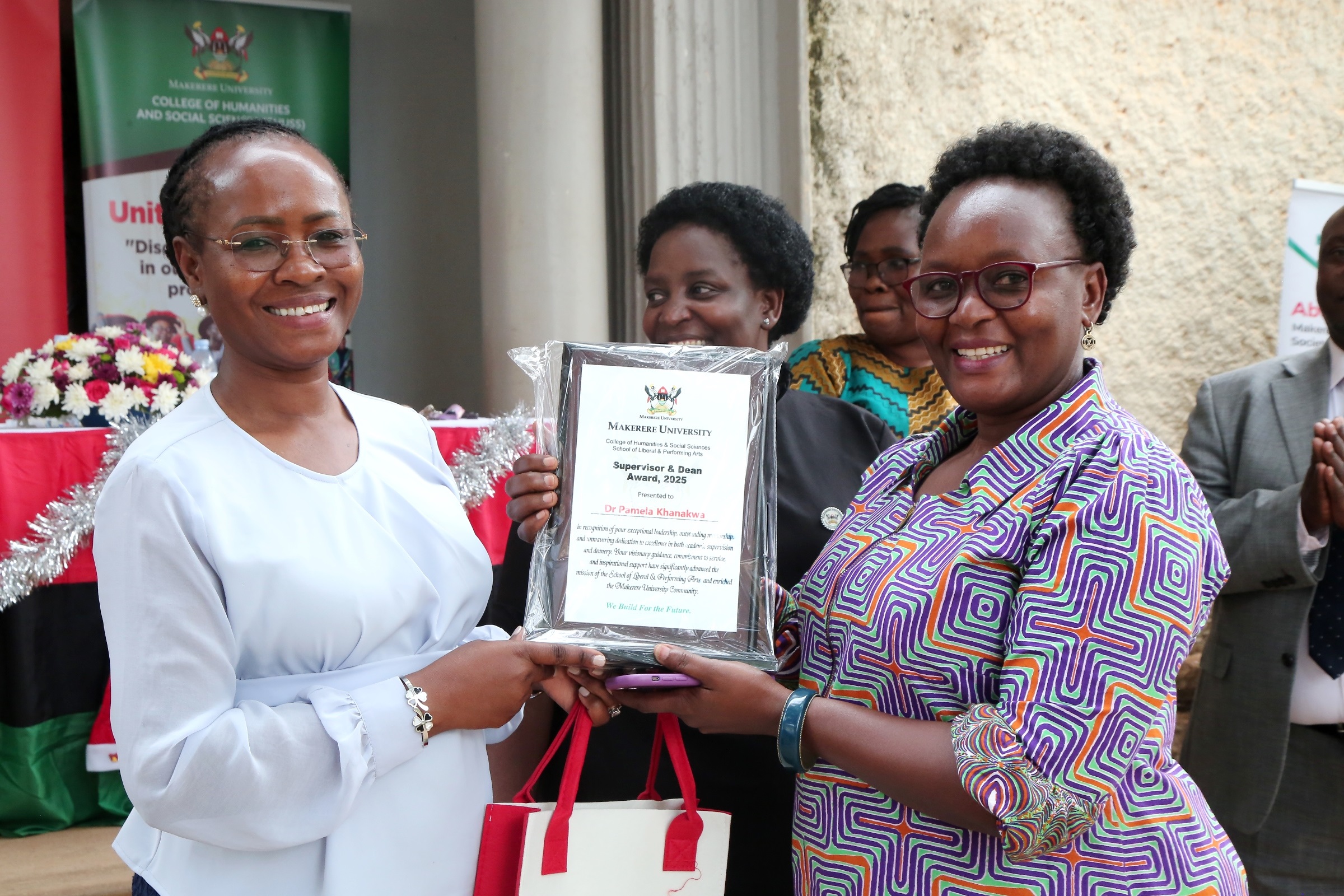
Six personally supervised, three completed in record time, as School of Liberal and Performing Arts sets a historic milestone. Dr. Pamela Khanakwa got the Award as Best PhD Supervisor and Dean
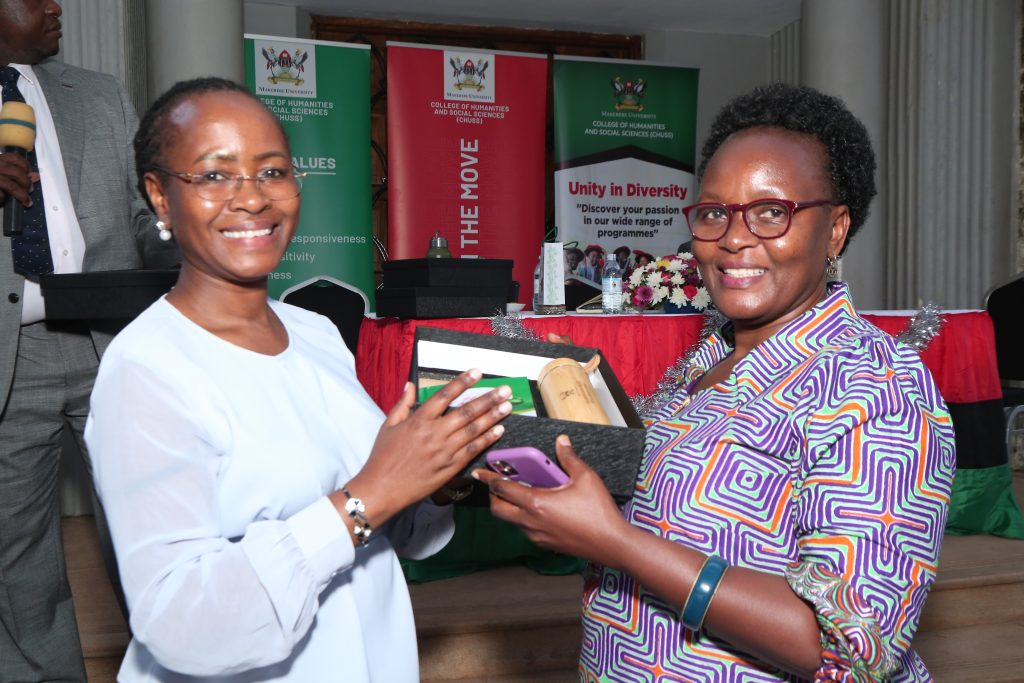
A Historic Academic Milestone for SLPA
The College of Humanities and Social Sciences (CHUSS) recognised the Dean of the School of Liberal and Performing Arts (SLPA), Dr. Pamela Khanakwa, for outstanding academic leadership that has seen the School field 18 PhD candidates for the next 2026 Makerere University Graduation Ceremony scheduled for 24th-27th February. Remarkably, six of these doctoral graduates were directly supervised by Dr. Khanakwa, with three completing within the official three-year timeframe, an exceptional achievement in graduate training. The recognition was announced during the CHUSS End-of-Year Get-Together, where staff applauded Dr. Khanakwa’s dedication, humility, and relentless commitment to postgraduate supervision and timely completion.
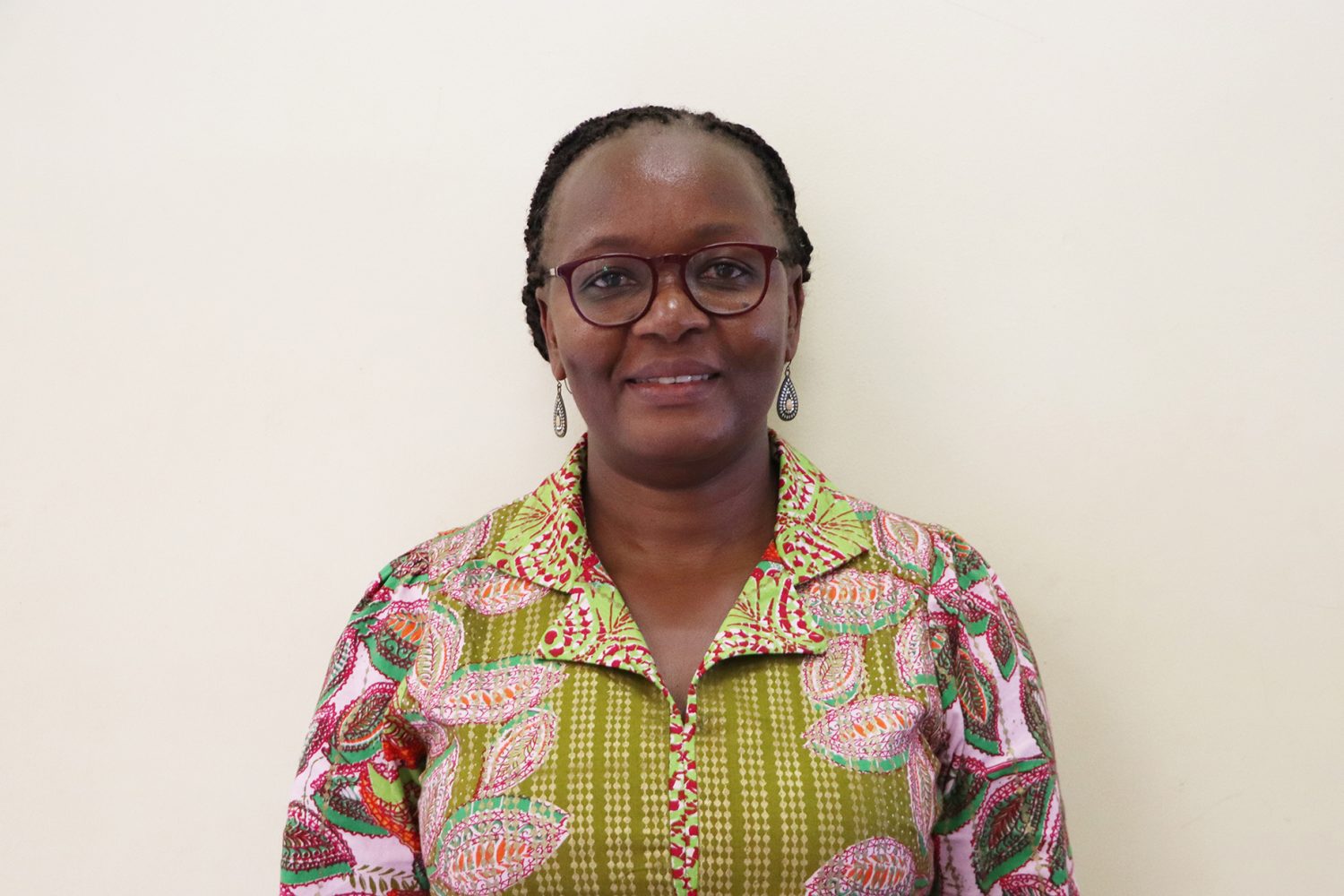
Message to Academic Staff
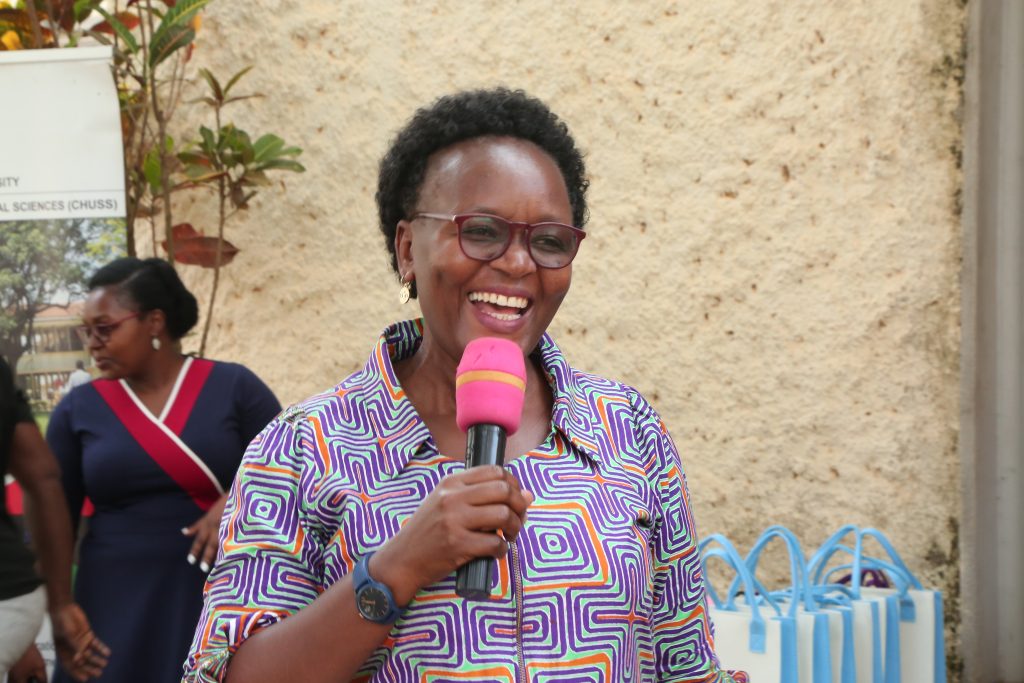
Q: What message do you have for your staff following this achievement?
Dr. Khanakwa:
First, I celebrate my staff and thank them for their dedication to supervision and student support. Academic work is demanding, and material rewards are often limited, but the true satisfaction comes from seeing students succeed.
I encourage my colleagues to remain committed. Yes, the workload is heavy, but many things are possible with dedication and teamwork. Let us continue working for the good of our students, our School, and Makerere University.
Leadership Rooted in Humility
Q: Many colleagues describe you as humble, down to earth, and hardworking. What shapes this character?
Dr. Khanakwa:
I think it is largely my upbringing. My mother was a primary school teacher from the 1950s until the mid-1980s. She worked extremely hard to raise us, combining teaching with farming to ensure we had school fees and basic needs. From her, I learned humility, discipline, and the value of hard work.
I also learned that leadership positions are temporary. You occupy them today, and tomorrow you move on. So humility is essential.
My graduate training also shaped me significantly. My PhD supervisor emphasized that graduate study is a full-time job and that results matter more than noise. Let people see your work through outcomes, not announcements.
Supervision as a Two-Way Commitment
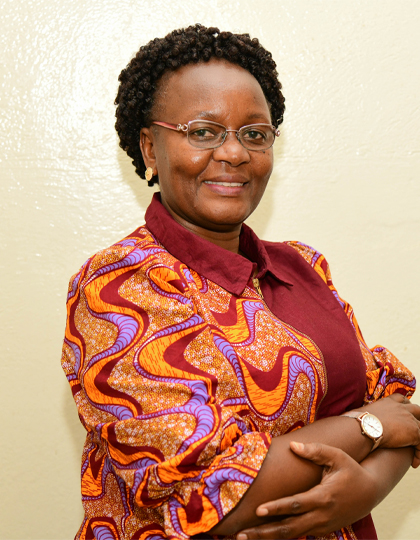
Q: How would you describe your supervision style?
Dr. Khanakwa:
I read my students’ work thoroughly, word by word. Sometimes my comments are tough, but they are honest. Supervision is a two-way commitment. I give feedback, but students must also respond and remain engaged. When that relationship works, progress happens.
Balancing Leadership, Scholarship, and Family
Q: How do you balance being a Dean, scholar, wife, mother, and daughter?
Dr. Khanakwa:
Honestly, I am not sure I balance perfectly. My mother lives far away in Bukwo, so visiting requires careful planning. My children grew up understanding the demands of academic life. I pursued my PhD in the United States and spent long periods away, but we adapted as a family.
Work has become part of my lifestyle. I use weekends to read dissertations, review manuscripts, and write. Sometimes my children ask if I ever sit without working, but this is the commitment I made. As we often say jokingly, “We humbly applied for the job, so let us do the job.”
Scholarship Beyond Supervision
Dr. Khanakwa is also an active scholar and editor. In the past year alone, she has:
- Edited scholarly volumes on archives, memory, method, and pedagogy
- Published a book with Routledge Companion
- Co-authored journal articles and book chapters with graduating students, including Priscah Asiimwe and Anatoli Lwasa Mpijja
“I feel an obligation to write with students,” she notes. “It takes time, energy, and commitment, but it is part of academic mentorship.”
Who Is Dr. Pamela Khanakwa?
Dr. Pamela Khanakwa is the Dean, School of Liberal and Performing Arts, College of Humanities and Social Sciences, Makerere University. She is a seasoned scholar, supervisor, administrator, and mentor whose leadership continues to redefine graduate training excellence. Details about Dr. Pamela Khanakwa can be accessed at: https://chuss.mak.ac.ug/en/personnel/pamela-khanakwa/
More details are available in her attached curriculum vitae.
The CHUSS End- Of-Year-Get-Together
On 12th December, 2025 the college leadership organised a get-together end of year gathering to take stock of the achievements, challenges and brainstorm together on how to move forward. The event was marked by entertainment, team building games, appreciation speeches, sharing a meal and a Christmas package for every staff
Retirees and staff recognised
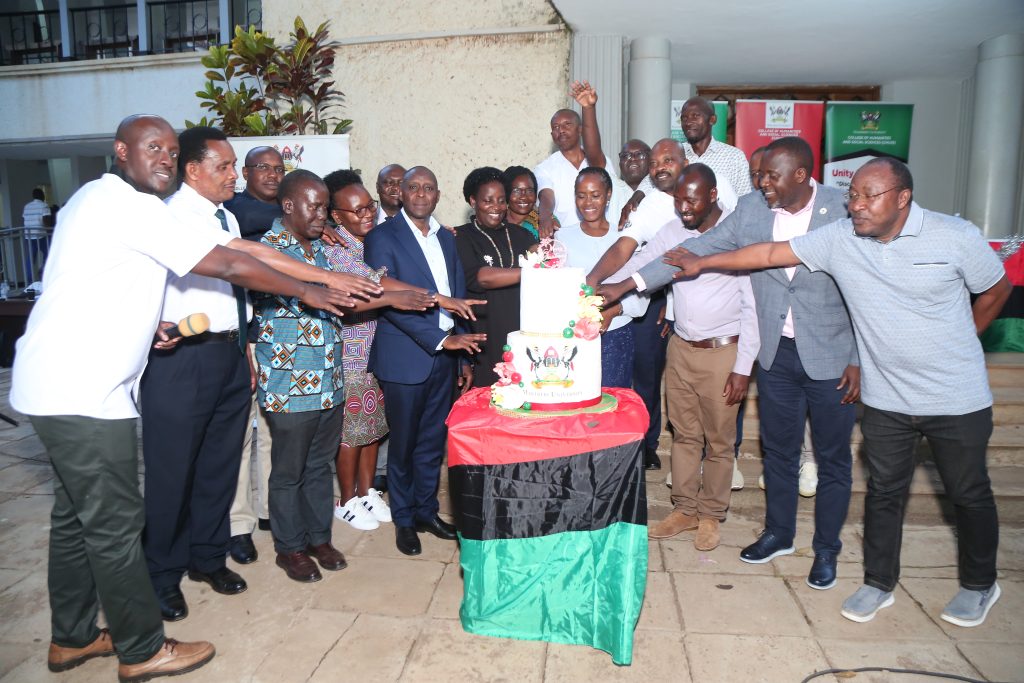
Five retired staff Dr. Micheal Wangotta Masakala, Dr. Anatole Kirigwajjo and Dr. Jackson Kizza Mukas (all from the School of Languages, Literature and Communication), Assoc. Prof. Florence Nansubuga (School of Psychology), Dr. Tusabe Gervase (School of Liberal and Perforing Arts) and Ms. Scovia Nganda Sekweyama (secretary from the School of Social Sciences) were recognised for their dedicated services to the university.
In addition to Dr. Pamela Khanakwa’s Award as Best PhD Supervisor and Dean, Ms. Birabwa Florence scooped the award of Best Registrar of the year. Birabwa is the registrar for the School of Liberal and Performing Arts.
Administrative and support staff including Ms. Mary Gyezaho and Annet Kashumbusha(both administrative secretaries in the Principals office), Farouq Lule (IT Officer), Godfrey Kakooza (cleaner), Charles Sebuguzi (driver) and Jane Anyango (Communications officer) were recognise with awards for outstanding service. Dr. Mohamed Mayanja Kajumba was from the School of Pyschology was recognised as the person with an outstanding talent in Handwriting.
The celebrations held in the Arts quadrangle were graced by the Vice Chancellor Academic Affairs Prof. Sarah Ssali and the Deputy Vice Chancellor in charge of Finance and Adminstration Prof. Ireeta Tumps.
Humanities & Social Sciences
Ugandan Journalists Trained on Peace and Gender-Sensitive Reporting Ahead of 2026 Elections
Published
2 months agoon
January 9, 2026By
Jane Anyango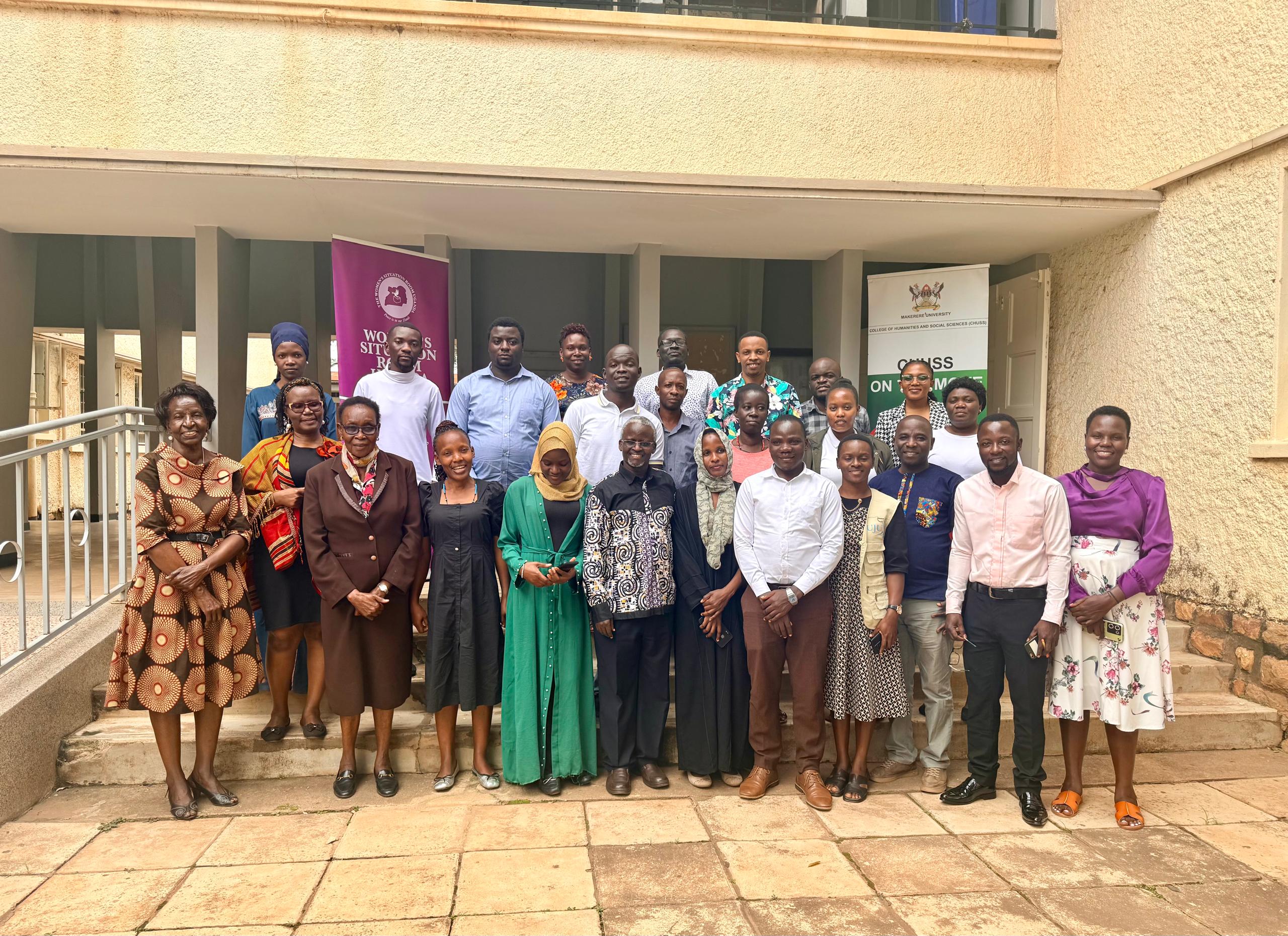
Kampala, Uganda – January 9, 2026
Ahead of the January 15 general elections, Ugandan journalists have undergone specialized training on peace and gender-sensitive reporting to ensure responsible media coverage during the election period. The two-day training, held from 8th to 9th January 2026 at Makerere University’s College of Humanities and Social Sciences Smart Room, was organized by the Women’s Situation Room (WSR) in partnership with various stakeholders and brought together journalists from across print, broadcast, and online platforms.
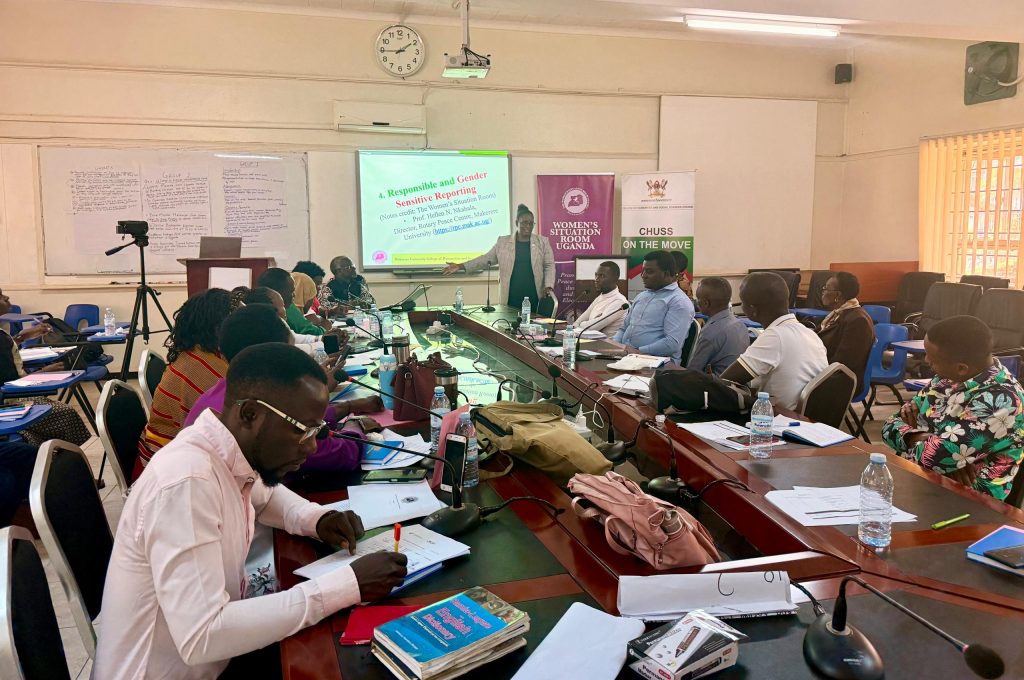
The main objective of the training was to strengthen the capacities of media in reporting and documenting electoral processes in a responsible and gender-sensitive manner. The specific objectives included: strengthening journalists’ skills to cover the 2026 elections in a fair, balanced, gender-sensitive, and non-violent partisan way; enhancing the role of media to enable citizens to be well-informed and actively participate in the election process; ensuring focused and balanced reporting on peace during and after elections; and strengthening partnerships between the WSR and media houses during the election period.
The training covered multiple critical modules. Day one focused on responsible conflict-sensitive reporting, emphasizing principles such as balance, impartiality, and accuracy. Participants explored the role of media as a relayer of the population’s voice, election monitor, catalyst for social cohesion and reconciliation, contributor to the accountability of political actors, and a platform for detecting and debunking digital media misinformation and hate speech.
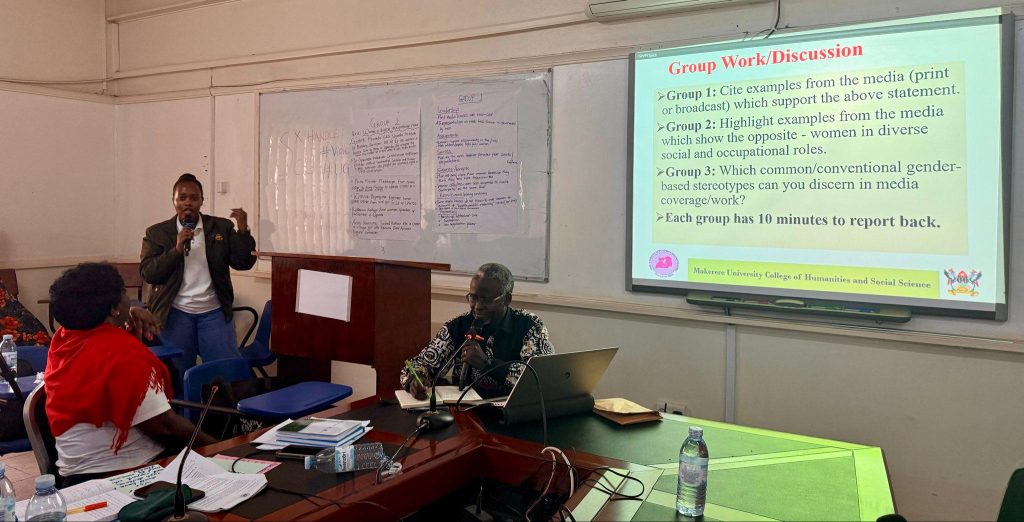
Day two addressed responsible and gender-sensitive reporting. Key aspects included the definition of gender-sensitive reporting, how to become a gender-sensitive reporter, critical elements in reporting with gender awareness, packaging gender-sensitive stories, and a checklist for detecting and avoiding gender-insensitive reporting.
Her Lordship, retired Judge Justice Mary Mayitum, emphasized the importance of peace as the foundation of development and democratic engagement. “Because we value peace more than anything. Without peace, really, you can do nothing. But where there is peace, you can have time to reflect, discuss with others, and join in meaningful dialogue,” she said. She warned that the country’s past conflicts, such as those in Gulu, underscored the necessity of maintaining national harmony.
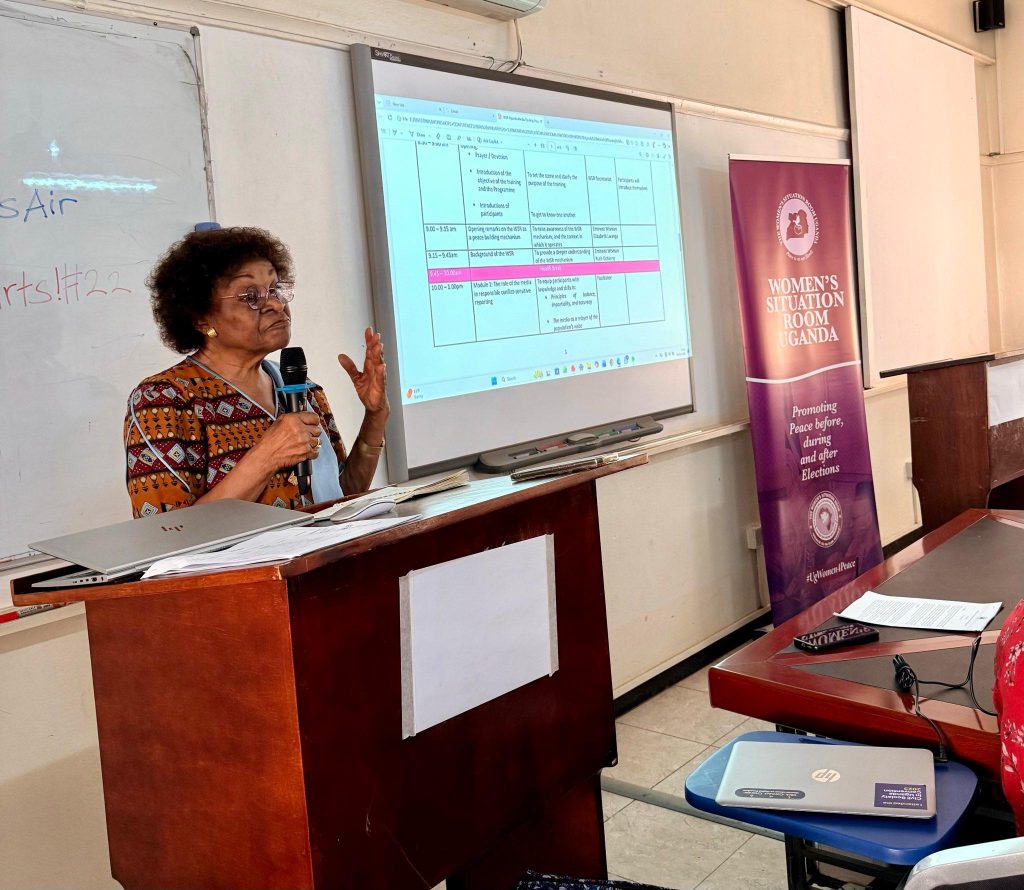
Justice Mayitum also urged other key election stakeholders to uphold peaceful conduct. “Being peaceful is the very heart of life. We have spoken to police, security personnel, political parties, and the Electoral Commission. We want politicians to have a code of conduct and to understand that it’s okay to think differently without fighting or hating one another,” she added.
Dr. William Tayebwa, lead facilitator and senior lecturer in the Department of Journalism and Communication at Makerere University, said, “This training is about conflict-sensitive reporting, peace journalism, and gender-sensitive reporting in the context of the elections. The emphasis was on giving female political candidates a voice while ensuring journalists report responsibly on election-related matters.”
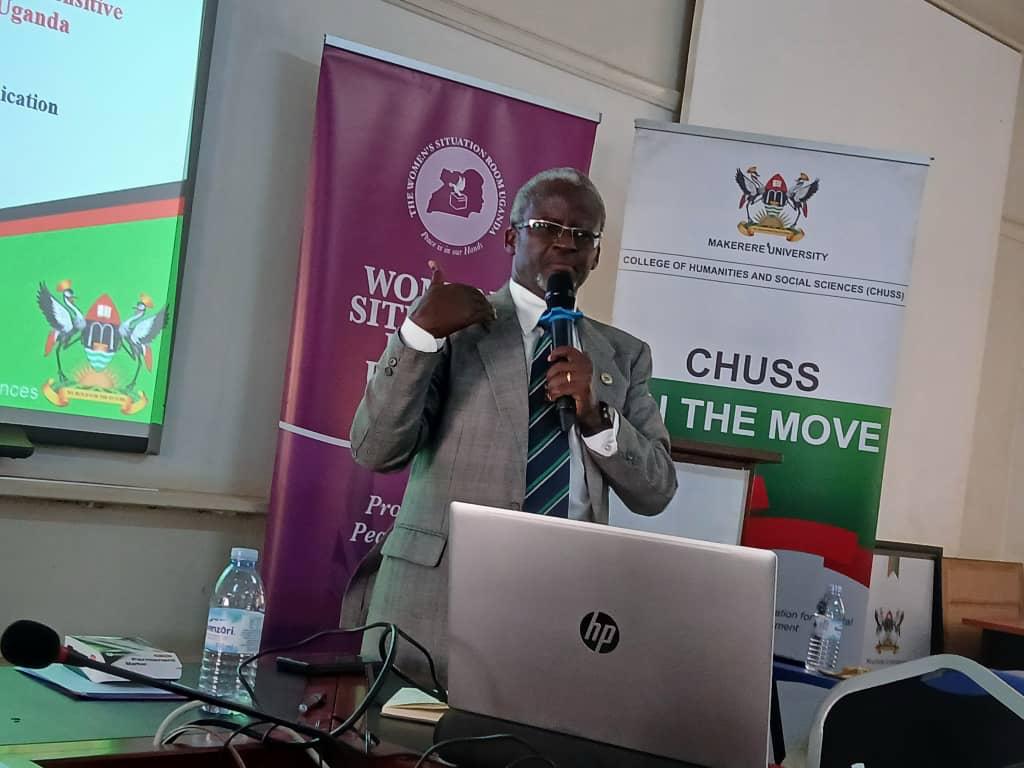
Participants described the training as timely and impactful. Tony Banizengabo of CBS Wakiso District said, “We’ve benefited a lot. We’ve been trained to write stories which bring peace, not conflict. Ahead of the elections, we are very ready to be part of peacemakers.”
Dorcas Kimono of UBC TV Kampala added, “It was so timely and rich. We learned how to report without promoting or fueling violence, giving voice to victims without angering them or encouraging violators. This is very vital, especially as we approach the 2026 elections.”
The training aims to equip media personnel with the knowledge and skills to uphold professional ethics while contributing to a peaceful, inclusive, and gender-sensitive electoral process.
Trending
-

 Humanities & Social Sciences4 days ago
Humanities & Social Sciences4 days agoMeet Najjuka Whitney, The Girl Who Missed Law and Found Her Voice
-

 Health1 week ago
Health1 week agoUganda has until 2030 to end Open Defecation as Ntaro’s PhD Examines Kabale’s Progress
-

 Agriculture & Environment1 week ago
Agriculture & Environment1 week agoUganda Martyrs Namugongo Students Turn Organic Waste into Soap in an Innovative School Project on Sustainable Waste Management
-

 General4 days ago
General4 days ago76th Graduation Highlights
-

 General1 week ago
General1 week agoMastercard Foundation Scholars embrace and honour their rich cultural diversity
